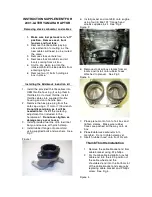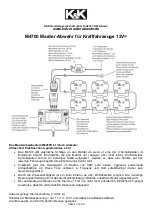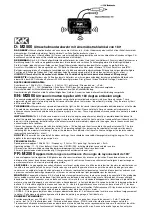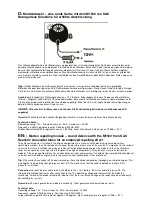
Here are some tips for getting the most out of your child
restraint:
•
Before buying any restraint system, make sure that it
has a label certifying that it meets all applicable Safety
Standards. The manufacturer also recommends that
you try a child restraint in the vehicle seats where you
will use it before you buy it.
•
The restraint must be appropriate for your child’s
weight and height. Check the label on the restraint for
weight and height limits.
•
Carefully follow the instructions that come with the
restraint. If you install the restraint improperly, it may
not work when you need it.
•
Except for the second row center seating position, all
passenger seat belts are equipped with “automatic
locking retractors identified by a distinctive label.”
The second row center position has a cinching latch
plate identified by a distinctive label. Both types of
seat belts are designed to keep the lap portion tight
around the child restraint so that it is not necessary to
use a locking clip. If the seat belt has a cinching latch
plate, pulling up on the shoulder portion of the
lap/shoulder belt will tighten the belt (the cinching
latch plate will keep the belt tight). However, any seat
belt system may loosen with time, so check the belt
occasionally and pull it tight if necessary. For the
second row seat belts with the automatic locking
retractors, pull the belt from the retractor until there is
enough to allow you to pass through the child restraint
and slide the latch plate into the buckle. Then, pull the
belt until it is fully extracted from the retractor. Allow
the belt to return to the retractor, pulling on the excess
webbing to tighten the lap portion about the child
restraint. For additional information, refer to
⬙
Auto-
matic Locking Mode
⬙
earlier in this section.
66
THINGS TO KNOW BEFORE STARTING YOUR VEHICLE
Summary of Contents for 2007 KA Nitro
Page 2: ......
Page 7: ...INTRODUCTION 7 1...
Page 10: ......
Page 105: ...UNDERSTANDING THE FEATURES OF YOUR VEHICLE 105 3...
Page 106: ...106 UNDERSTANDING THE FEATURES OF YOUR VEHICLE...
Page 107: ...UNDERSTANDING THE FEATURES OF YOUR VEHICLE 107 3...
Page 162: ...INSTRUMENT PANEL AND CONTROLS 162 INSTRUMENT PANEL AND CONTROLS...
Page 163: ...INSTRUMENT CLUSTER INSTRUMENT PANEL AND CONTROLS 163 4...
Page 234: ......
Page 277: ...STARTING AND OPERATING 277 5...
Page 322: ......
Page 338: ...ENGINE COMPARTMENT 3 7L 338 MAINTAINING YOUR VEHICLE...
Page 339: ...ENGINE COMPARTMENT 4 0L MAINTAINING YOUR VEHICLE 339 7...
Page 419: ...INDEX 10...
















































